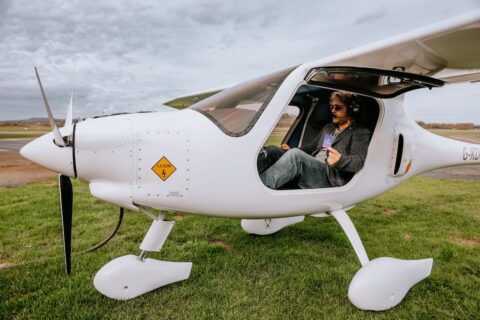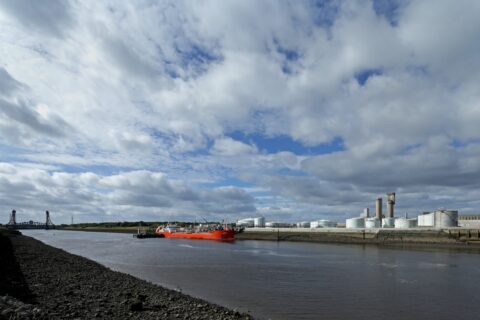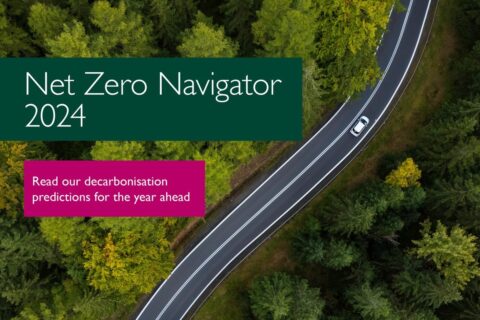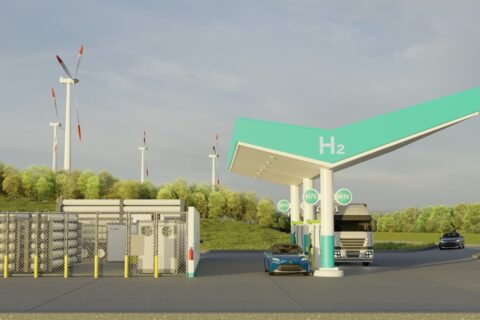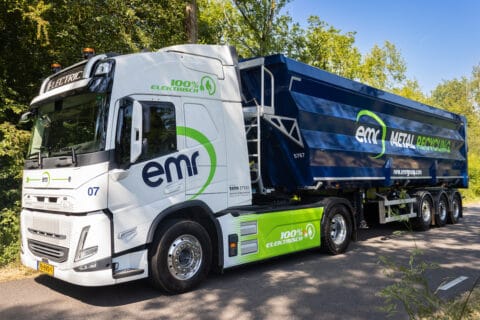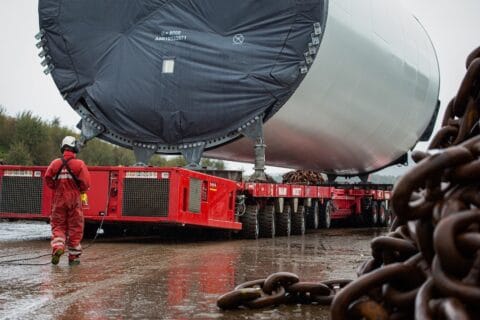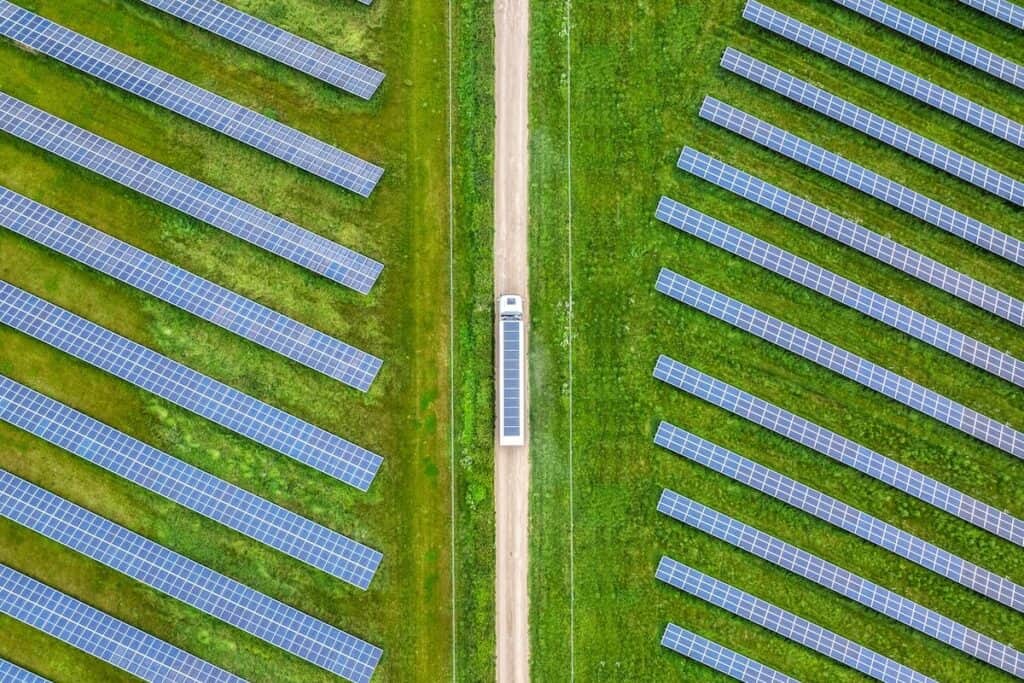
In this SustMeme Guest Post, Michael Lowe, Co-founder and CEO of zero-emission refrigeration pioneer Sunswap, explains how the journey to climate transition for cold chain transport can start small with a series of smart steps.
ML: In the business world, climate ambitions can often run up against the hard realities of implementation.
The freight and logistics sector has made bold climate pledges in recent years, from net-zero targets to promises of greener fleets. But ambition alone won’t move the needle. The challenge we now face is practical: how do we turn intent into impact, especially in the hard-to-decarbonise corners of supply chains?
Nowhere is this problem more evident than in cold chain logistics.
For the uninitiated, the cold chain is essentially the refrigerated trailers that keep goods chilled — the ones you see on the motorways and highways delivering everything from milk and meat, to medicine.
This part of the sector is still dominated by diesel-driven refrigeration units, underscoring the gap between net-zero aspirations and on-the-ground action. These units often receive less attention in fleet decarbonisation plans — yet they represent a significant opportunity to reduce emissions and costs.
Entry points to transition
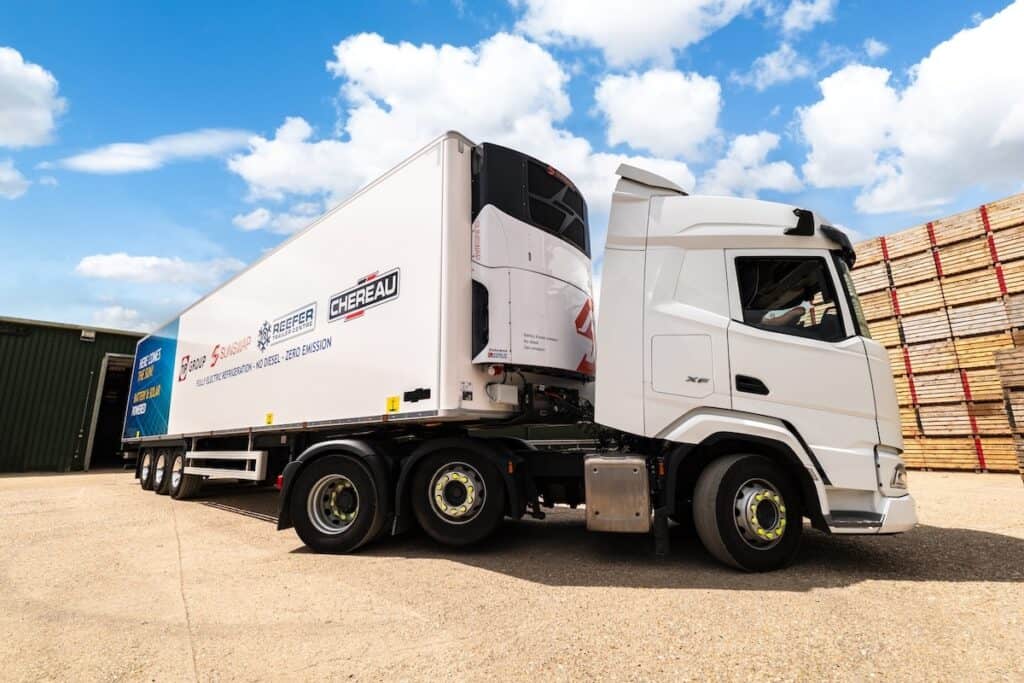
For many fleet operators (and industries beyond), decarbonisation can feel overwhelming with options, edicts, and advice coming from all directions. Replacing an entire fleet of diesel trucks with electric vehicles is expensive, logistically complex, and still limited by charging infrastructure.
As a result, many operators delay action, waiting for the perfect moment to make a wholesale switch. All too often in life and business, however, there is ‘no perfect moment’. A smarter approach is to look for practical entry points that allow companies to begin the transition today, without compromising operations.
Cold chain transport is one such entry point.
Instead of focusing solely on the entire tractor unit, operators can address the emissions of the trailer refrigeration system. This is a piece of the puzzle that’s often overlooked but can deliver outsized gains.
Cutting both carbon and costs
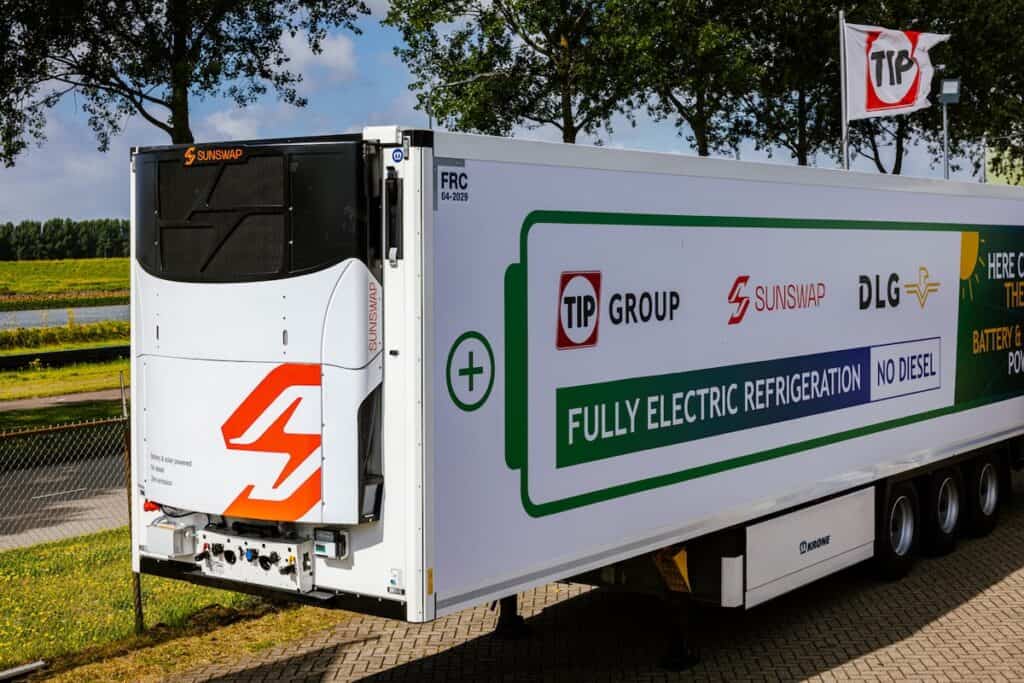
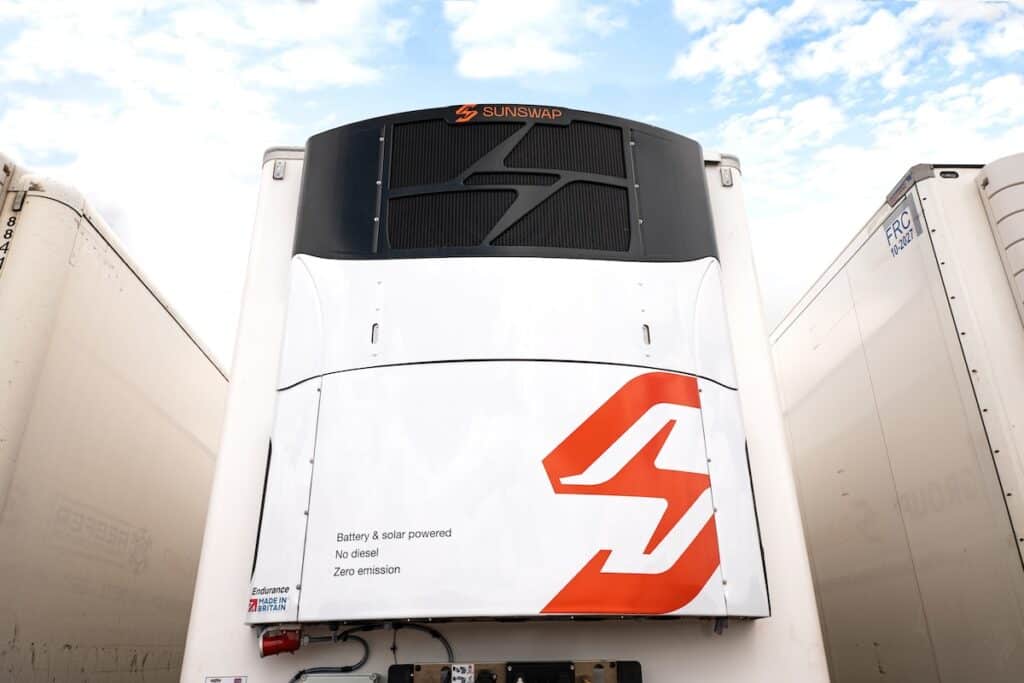
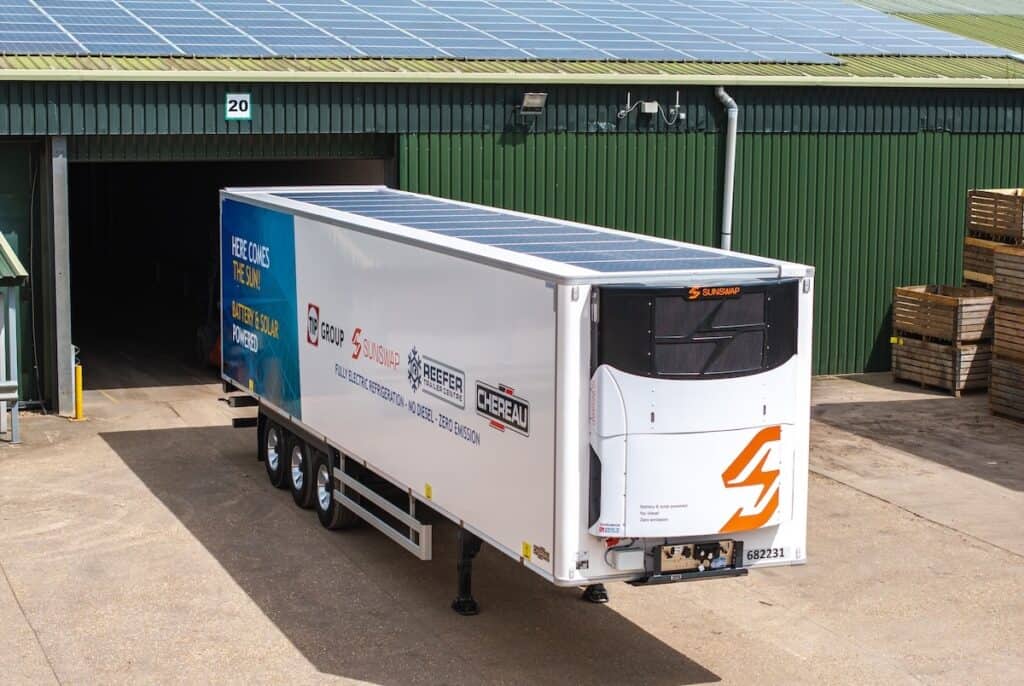
Changing the way we do things in commerce and industry often starts with a question. So, at Sunswap, for example, we asked ourselves: What if we reengineered transport refrigeration from the ground up?
What if, instead of a diesel engine, the cooling system was powered by clean energy?
We created a solution that is a combination of solar panels mounted on the trailer roof and a battery pack housed where the diesel engine normally sits. Together, they power a fully electric refrigeration unit.
The battery can also be topped up from mains electricity at loading bays. The system maintains cooling performance without burning a drop of diesel.
This approach can offer two key benefits, in that it completely reduces CO2 emissions, and at the same time cuts operating costs by up to 81% compared to diesel — significant savings on emissions and expenditure.
In a recent commercial deployment with DFDS — the world’s leading ferry operator — it was calculated that with 10 units on fleet, an estimated 500,000 litres of diesel will be saved across a 10-year operating period.
The lesson for the wider industry is that addressing a specific pain point, such as trailer refrigeration, can be a pragmatic and effective first step towards wider fleet decarbonisation.
Start small, phase, and scale
Fleet electrification doesn’t have to be an all-or-nothing transformation — in fact, it shouldn’t be.
Incremental change — piloting new technologies in targeted parts of a business, for instance to reduce idle emissions — allows logistics firms to build confidence, test performance, and unlock ROI before scaling up.
This kind of stepping-stone thinking is essential to avoid decision paralysis.
The technology you purchase today will be with you for the next decade. That is a commitment to diesel for another 10 years. Waiting until 2035 to waterfall your entire fleet is likely to be a disruptive and expensive strategy. Decarbonisation can, and should, begin now — even if in small, focused ways.
To make a practical start, operators can follow a phased game plan:
- Start small: Pilot new technologies on select routes or a handful of trailers to test real-world performance;
- Build partnerships: Collaborate with technology providers (and early-adopter peers) to share risks and tailor solutions to your operational needs;
- Focus on high-impact areas: Target the parts of your fleet with the highest fuel use or emissions first — that’s where electric refrigeration or other innovations will deliver the greatest benefits.
Greener fleets can open doors
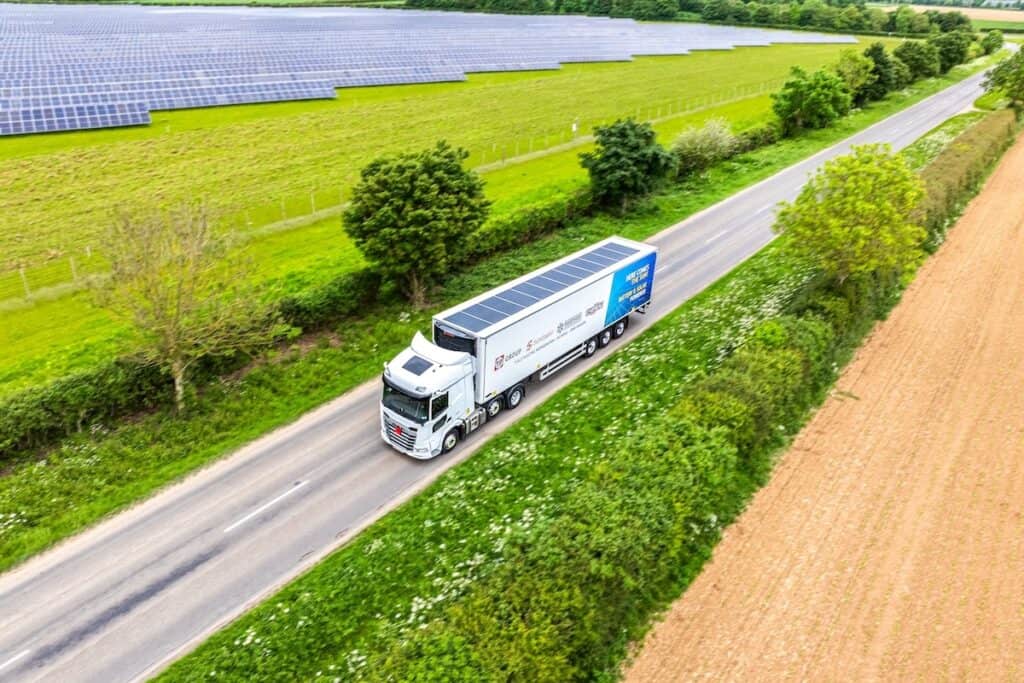
In all of this, it is easy to assume sustainability is a competitive advantage. But, is it? Let’s unpack it a little…
We are, for sure, seeing a shift in the logistics space in the role sustainability can play in winning business.
Companies that demonstrate genuine progress towards decarbonisation are gaining an edge in contract bids — which are making this an increased specificity or providing a higher score allocation, especially with large retailers and manufacturers who are under pressure to reduce supply chain emissions (as in Scope 3).
We’ve already seen this in practice. Our work with UK logistics providers has helped position them for contracts with domestic retailers keen to trial low-emissions transport options.
Others are also following suit, recognising that a greener fleet can open doors.
Moreover, sustainable logistics is increasingly tied to access to finance.
Programmes like the Sustainable Supply Chain Finance Scheme launched by British supermarket Asda show how businesses making tangible sustainability improvements can unlock better terms. These incentives will only grow as ESG criteria become embedded across procurement and investment decisions.
Delivery decade: Intent to implement
We’re now in what many are calling the ‘delivery decade’ for climate action. The time for promises is past.
What’s needed now are practical, scalable, and commercially viable solutions that help companies make measurable progress. So, my message to fleet operators and logistics leaders is this: you don’t have to wait.
There are areas of your operation. like refrigeration, where proven clean technologies exist today. Starting there can unlock carbon savings, cost reductions, and strategic advantages.
The climate transition isn’t a single leap; it’s a series of smart steps. Let’s take the first one now.

Michael Lowe is Co-founder and CEO of Sunswap, leading the company’s mission to decarbonise the cold chain with zero-emission transport refrigeration technology. With an automotive background at businesses including Ricardo, Michael launched Sunswap in 2020. Sunswap has since successfully raised over £25M, launched its flagship product, Endurance in November 2024 and established a UK manufacturing facility. Endurance is the world’s first purpose-built battery and solar-powered transport refrigeration unit (TRU).
Further Reading:
- More about transport refrigeration pioneer Sunswap; and its battery and solar-powered TRU, Endurance;
- Also on SustMeme, Upcycled refuse trucks save carbon and capital;
- Also on SustMeme, First all-electric truck for Amsterdam metal recyclers;
- Also on SustMeme, Workhorse of heavy industry goes electric;
- Also on SustMeme, Zero-emission hydrogen-electric HGV is UK first;
- Also on SustMeme, Charging ahead on the switch to electrified fleets;
- Also on SustMeme, First full-electric truck for inner-city logistics;
- Also on SustMeme, Net zero road transport is still possible by 2050.
You can check out the full archive of past Guest Blog posts here.
Would you like to Guest Blog for SustMeme? For more info, click here.
SUSTMEME: Get the Susty Story Straight!

